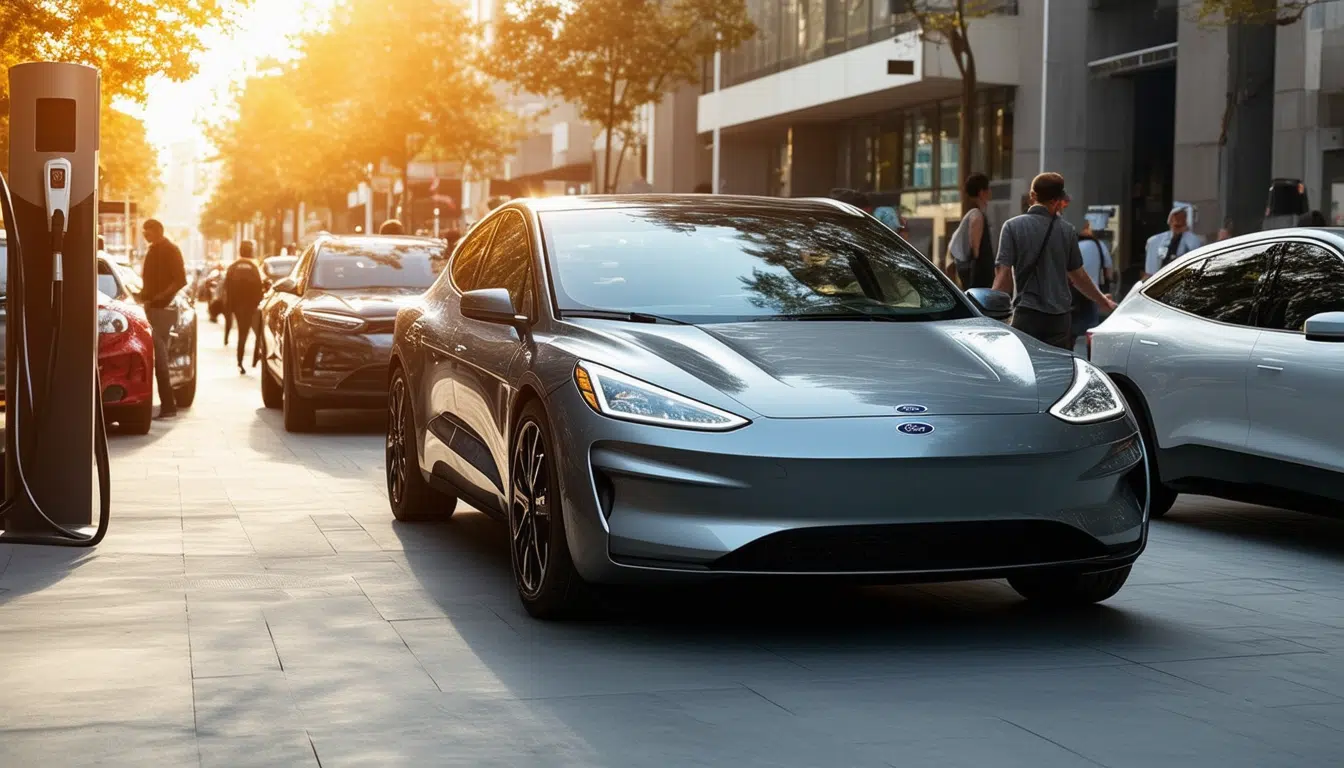Reasons behind the low success of the electric car: Ford points out that the lack of appreciation of its features is a key factor

The electric car, despite being an innovative and environmentally friendly alternative, has not achieved the expected success in the market. Among the multiple barriers it faces, Ford has identified that one of the key factors is the lack of appreciation on the part of consumers for the qualities inherent in electric vehicles. This lack of recognition translates into slow adoption and the need to educate the public about the benefits these vehicles offer.
Electric cars have not reached the expected success despite their many advantages. According to Ford, one of the main factors is the lack of appreciation and knowledge on the part of users about the features and benefits of these vehicles. In addition, other factors such as high maintenance costs, insufficient charging infrastructure, and the need for vehicles better suited for long trips also play a crucial role.
Lack of appreciation for the features of electric cars
Ford has highlighted that the slow adoption of electric cars is largely due to users not being able to appreciate their qualities. This includes everything from superior performance in terms of acceleration and handling to reduced emissions and lower long-term operating costs. Ford insists that the lack of knowledge about these benefits has prevented many consumers from seriously considering the purchase of an electric car.
Unknown advantages of LFP batteries
A concrete example is the LFP (lithium iron phosphate) batteries used in some electric car models like the Mustang Mach-E. These batteries offer numerous advantages compared to nickel-cobalt and manganese batteries, such as greater longevity and stability. However, most users are unaware of these particulars, which contributes to their lack of enthusiasm for electric cars.
High maintenance costs and adaptation for long trips
High maintenance costs are often cited as a barrier to the adoption of electric cars. Additionally, many consumers believe that electric cars are not suitable for long trips due to the still limited charging infrastructure and prolonged charging times. This negative perception significantly affects users’ willingness to opt for an electric vehicle.
Investment and reconsideration of strategies
The weakness of the electric car market is also forcing manufacturers to rethink their strategies and multi-million dollar investments in this technology. In the case of Ford, they have rolled back some of their plans to accelerate electric car production and are reevaluating their approach in light of low demand.
Appreciation of superior performance
Electric cars perform better in many aspects compared to internal combustion vehicles. However, the lack of familiarity with these benefits has limited their acceptance in the market. In fact, many users are not aware that electric cars provide a smoother and quieter driving experience, as well as lower operating costs due to fewer maintenance requirements.
The path to sustainable mobility
Despite the challenges, electric cars are a key piece in the transformation towards more sustainable mobility. We need fewer cars overall, but those that are used should be electric to reduce carbon emissions and improve air quality. Understanding and valuing the qualities of electric cars is essential to achieving significant change towards more environmentally friendly mobility. For more details, you can learn about the Gen 3 Engine which also represents an advancement in this sense.
Conclusion
In summary, the lack of appreciation for the features of electric cars is one of the main factors that have impeded their success. Added to this are other challenges such as high maintenance costs, insufficient charging infrastructure, and suitability for long trips. Ford and other manufacturers must continue to educate consumers about the advantages of electric cars to overcome these barriers and encourage broader adoption in the future.
The low success of electric cars can be attributed to multiple factors, but one of the most highlighted according to Ford is the lack of appreciation for their features by the public. This statement highlights an underlying problem of information and perception that affects the adoption of electric vehicles in the market.
Ford has noted that many consumers are unaware of the significant advantages of the batteries used in electric cars, particularly LFP (lithium iron phosphate) batteries, which have various benefits compared to the more common nickel-cobalt and manganese ones. These batteries are safer, more durable, and less expensive, but their lack of awareness limits the positive valuation of electric cars.
Additionally, another important factor is the general perception that electric cars incur high maintenance costs and are not suitable for long trips. This perception, although in many cases not reflective of reality, continues to be a barrier to mass adoption. In reality, the maintenance costs of electric cars are generally lower over time because they have fewer moving parts and do not require oil changes.
The charging infrastructure also plays a crucial role. The lack of fast charging stations and the perception of insufficient charging coverage contribute to the public’s reluctance. In this context, improving the infrastructure and educating the public about the true capabilities of electric cars could be decisive for their acceptance.
Finally, the need to restructure marketing and communication strategies is evident. Automakers should focus on highlighting the strengths of electric cars, not just in terms of environmental benefits, but also regarding performance, safety, and costs. Consumer education and infrastructure improvement can be the pillars that allow overcoming these barriers, thus achieving greater success and acceptance of electric cars in the market.



